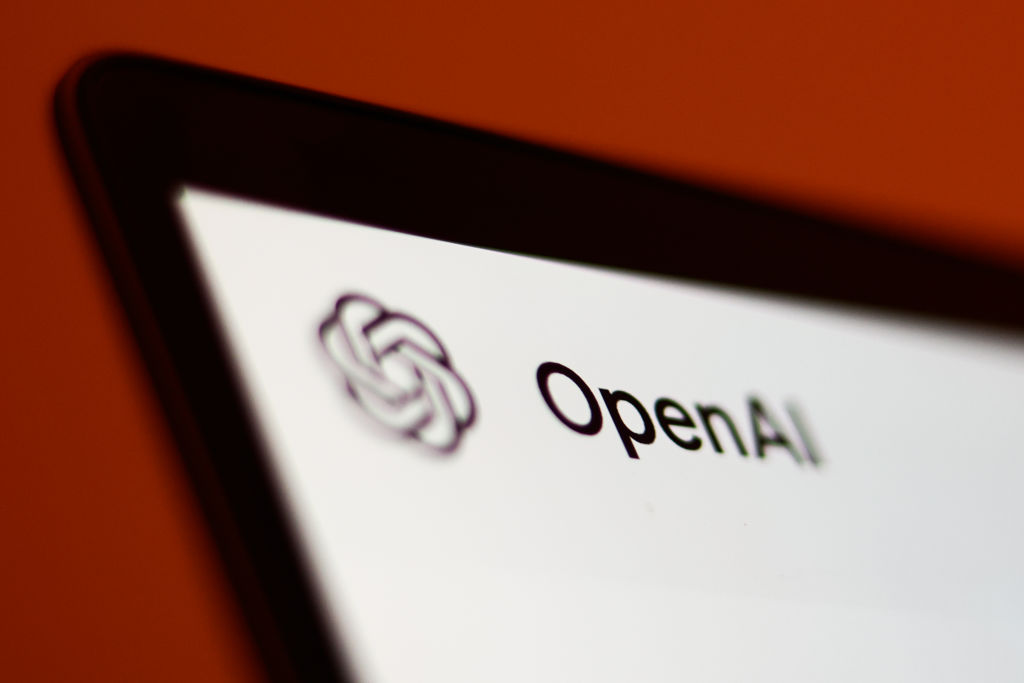Physical Address
304 North Cardinal St.
Dorchester Center, MA 02124
Physical Address
304 North Cardinal St.
Dorchester Center, MA 02124

Openai announces a new “agent” of artificial intelligence designed to help people conduct complex and in -depth research using ChatGPT, Chatbot platform on behalf of artificial intelligence.
Suitable enough, it is called deep research.
Openai said in Blog post It was published on Sunday that this new ability was designed for “people who do extensive knowledge in areas such as financing, science, politics and engineering and need comprehensive, accurate and reliable research.” The company added that the company may also be useful for anyone who “making purchases that usually require accurate search, such as cars, devices and furniture.”
Basically, Chatgpt Deep Research aims at cases where you don’t just want an answer or a quick summary, but instead you need to think hard in information from multiple web sites and other sources.
Openai said it provides a deep search for Chatgpt Pro users today, limited to 100 quotes per month, with Plus users and team users after that, followed by Enterprise. (Openai is targeting an excessive offer within almost a month from now. Openai has not had a timetable for the release of its participation in Chatgpt customers in the United Kingdom, Switzerland and the European Economic Zone.
To use the Ratgpt Deep Research, you will only determine a “deep search” in the composer and then enter query, with the option to attach files or data schedules. (It is an online experience only at the present time, with the integration of mobile applications and desktop later this month).
Currently, Chatgpt Deep Research is the text only. But Openai said that he intends to add included images, data perceptions and other “analytical” outputs soon. Openai added that on the road map is also the ability to connect “the most specialized data sources”, including “subscription based” and internal resources.
The big question is, how deep is the deep search search? Artificial intelligence is incomplete, after all. It is vulnerable to hallucinations and other types of errors that can be especially harmful in the “deep research” scenario. Perhaps this is the reason why Openai said that all the deep search outcomes Chatgpt will be “fully documented, with clear and a summary of thinking (), which makes it easy to refer to and verify information.”
The jury is outside whether this reduction will be sufficient to combat artificial intelligence errors. The ISIS search feature in ChatGPT, ChatGPT search, not recurrent Makes gaffes and gives wrong answers to questions. The Techcrunch test found that the ChatgPT search has produced less useful results from searching for Google than certain queries.
To enhance the accuracy of deep research, Openai uses a special version of the recently announced “thinking” model that has been trained by learning to enhance “the real tasks that require the use of the browser and the use of the Python tool”. Essential learning reinforcement “teaches” a model through experience and error to achieve a specific goal. As the model approaches the target, it receives virtual “bonuses”, making it better in the task to move forward.
Openai claimed that, thanks to the seized O3 model, deep research can conduct multiple -step research, a decrease in information in the actual time, create graphics, and specifically cited “hundreds of sources and corridors.
Openai said in the blog: “(This) the version of the upcoming Openai O3 model (IS) is improved for web browsing and data analysis,” Openai said in the blog. (1) T promotes thinking about research, interpretation and analysis The python tool, including the graphs and images created from web sites in their responses, indicate specific sentences or clips from their sources.

The company said it tested Chatgpt deep research using The last humanity examEvaluation includes more than 3000 questions at the level of experts in a variety of academic fields. The O3 model that works to operate deep research has achieved 26.6 % resolution, which may seem to be a failed degree – but the last humanity exam is designed to be stricter than other criteria for survival before typical developments. According to Openai, the O3 Research O3 model came before thinking about Gemini (6.2 %), Grok-2 (3.8 %), and Openai GPT-4O (3.3 %).
However, Openai notes that the deep search chains have restrictions, and sometimes it makes incorrect errors and conclusions. The company said that deep research may be struggled to distinguish between reliable information about rumors, and often fails to transport when it is not sure of something – and it can also make coordination errors in reports and martyrdom.
Anyone concerned about the impact of the artificial intelligence on students, or anyone trying to find online information, this type of in -depth and in -depth output may seem more attractive than a very simple Chatbot summary without martyrdom. But we’ll see whether most users will be already undergoing real analysis and double verification, or if they simply treat it as a more professional text for copying.
And if all this looks familiar, Google has already announced a similar AI feature of the same name less than two months ago.